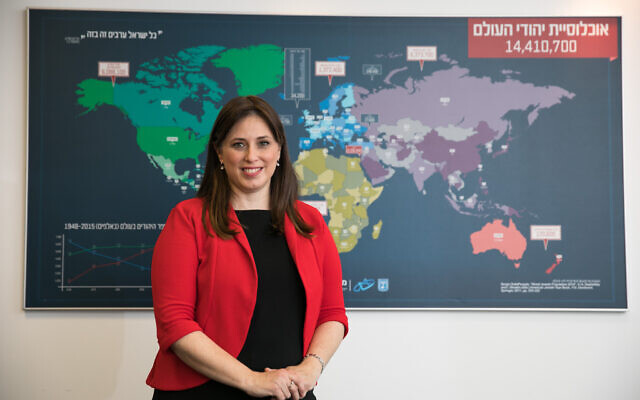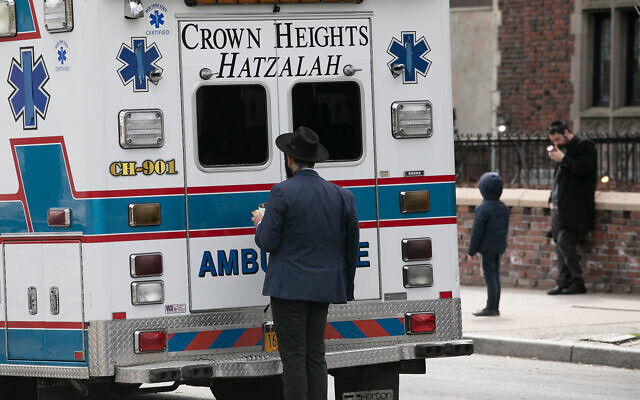Diaspora Affairs Minister Tzipi Hotovely says Jerusalem exploring ways to help, in talks with community leaders, but Diaspora Jews yet to formulate concrete needs

The State of Israel is currently considering ways to help Jewish communities abroad affected by the coronavirus pandemic, but first needs to establish exactly what kind of assistance is desired and possible, Diaspora Affairs Minister Tzipi Hotovely said Thursday.
“The situation requires out-of-the-box thinking,” she told The Times of Israel in a telephone interview. “It’s not that there is nothing we can do. But it’s not the regular things that are done after an earthquake or a tsunami or a terror attack. This is not in the category of events that you know how to respond to.”
Given that Israel — with about 16,000 coronavirus cases and 222 dead — finds itself in a relatively good position compared to many large Jewish communities, especially in New York, France and the UK, some prominent Diaspora leaders have started to call for more solidarity and concrete assistance from the Jewish State.
Some Diaspora communities may feel that Israel is not doing enough for them because they have not formulated specific needs that Israel could address, Hotovely said.
“They are not asking for financial assistance. They want something else. But most people cannot put their finger on what this ‘something else’ is,” she said.

Hotovely said her ministry has already organized video-conferences in which Jewish community leaders and Jewish Agency chairman Isaac Herzog discussed various ways how Israel can help Diaspora Jewry.
“We spoke to community leaders, we got feedback. We are now working on translating this into an action plan,” she said, hesitant to provide more details before the project is finalized.
“We opened an operations center — like a war room,” said Hotovely, who was appointed diaspora affairs minister in late January. “We’re treating the virus just like an anti-Semitic attack, just that in this case there is no address — it’s a disease. It’s a medical event.”
Hotovely added that she briefly mentioned the need to help Diaspora Jews to Prime Minister Benjamin Netanyahu, who agreed wholeheartedly that something needs to be done to provide aid.
“We at the Diaspora Affairs Ministry are totally connected to the world Jewry’s deep need for an address for their issues,” she said. “I feel committed to help ease the deep suffering that exists in Jewish communities around the world, especially in New York, London and Paris, which are the Jewish communities hit hardest by the pandemic.”

Ronald S. Lauder, president of the World Jewish Congress, last week said the coronavirus “created a certain tension between the Jewish state and Jews in the diaspora.” Writing in The Times of Israel, he noted that many were frustrated at being told not to come to Israel despite seeing the country as their second home.
“Others felt that Israel could have done more to help crisis-stricken communities. The gap between stanching-the-spread of the virus in Jewish Tel Aviv and succumbing to the virus in Jewish New York (Jewish London and Jewish Antwerp) has rankled,” Lauder wrote.
Lauder also called for an “ambitious initiative to bring Israeli and other medical aid to Jewish communities ravaged by coronavirus.”
Rabbi Elchanan Poupko, who like Lauder hails from New York, said in an op-ed for the Makor Rishon weekly that Israelis do not seem to care about the fate of their Jewish brethren in virus hotspots across the globe.
“Not the Israeli organizations that solicit funds as testament to our solidarity with our Israeli brethren… not the Israeli politicians that praise the deep and unbreakable bonds… not the Israeli rabbis so eager to interfere in our internal matters,” he wrote.
Indeed, the Jewish state “has deserted us at our lowest point,” Poupko claimed.
As reported by The Times of Israel
